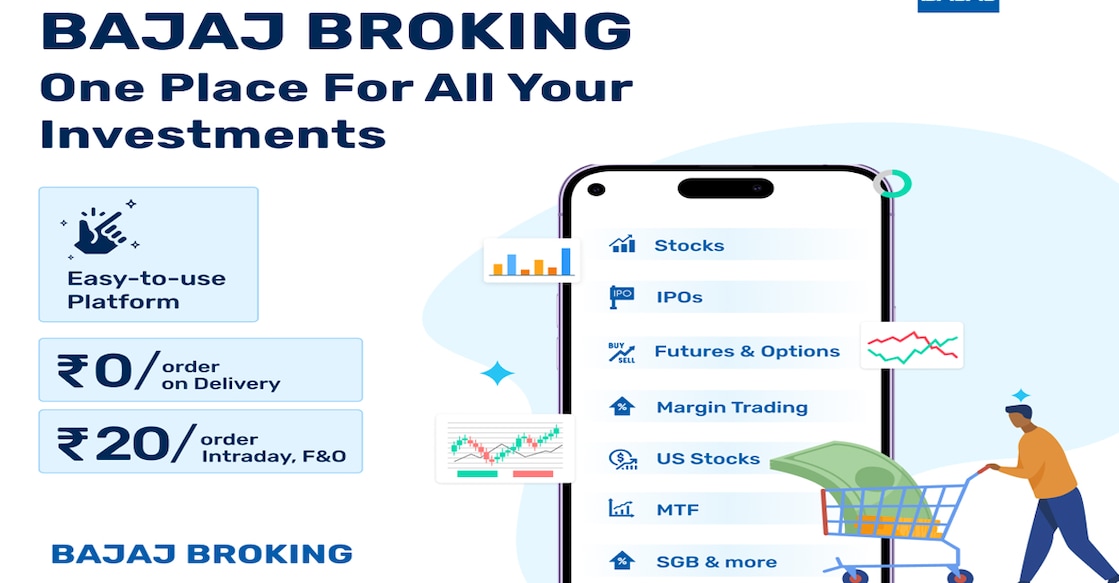How India VIX index affects Nifty market volatility

Mail This Article
The stock market has its share of ups and downs, and volatility plays a crucial role in guiding investor sentiment and trading strategies. One key tool to measure this volatility is the India VIX Index. Understanding how it affects broader market indices like the Nifty and Bank Nifty index can help you make informed investment decisions.
Whether you’re trading equities, options, or futures, being aware of market volatility is essential. Open a demat account with Bajaj Broking to access advanced market insights and make the most of market movements.
What is the India VIX index?
The India VIX Index measures the market's expectation of volatility over the next 30 days. It is derived from the prices of Nifty options and represents the degree of uncertainty or risk perceived by traders.
Key points about the India VIX Index:
(i) A higher VIX indicates increased volatility expectations, often linked to bearish sentiment.
(ii) A lower VIX signals stability and reduced market uncertainty, typically tied to bullish sentiment.
(iii) It is not a directional indicator, meaning it doesn’t predict market movements but rather measures their intensity.
How does the India VIX index affect Nifty volatility?
The Nifty 50 is India’s benchmark stock market index, encompassing the top 50 companies. The India VIX and Nifty have an inverse relationship:
High VIX, falling Nifty
(i) When the India VIX rises, it signals uncertainty, often leading to a decline in Nifty.
(ii) Traders become risk-averse, resulting in selling pressure.
Low VIX, rising Nifty
(i) A declining India VIX reflects stability and optimism, leading to upward movements in Nifty.
(ii) Investors feel confident, driving buying momentum.
Let’s take the example of the Bank Nifty Index. It is a subset of the broader Nifty 50 that tracks the performance of the banking sector, making it a vital indicator for financial market trends. Here's how the India VIX influences the Bank Nifty Index:
High VIX and banking sector volatility
(i)When the India VIX spikes, traders often witness heightened swings in the Bank Nifty Index.
(ii)Banking stocks are sensitive to macroeconomic factors like interest rates and inflation, making them highly responsive to volatility signals.
Low VIX and market stability
(i)A low VIX correlates with reduced volatility, creating a more stable environment for banking stocks.
(ii)Traders often find low VIX periods ideal for long-term investments in the Bank Nifty Index.
By understanding the interplay between these indices, you can time your strategies more effectively.
Importance of India VIX for Traders
1. Risk assessment
The India VIX helps traders gauge potential risks in the market. A spike in the index can signal turbulent times, prompting cautious decision-making.
2. Options pricing
Option premiums are directly influenced by volatility. Higher India VIX levels lead to higher premiums, benefiting options sellers.
3. Portfolio hedging
Investors use VIX-related insights to hedge their portfolios during uncertain times. For instance, buying put options when VIX spikes can offset potential losses in equity holdings.
4. Market timing
Day traders and swing traders rely on the India VIX to identify periods of high or low volatility, adjusting their strategies accordingly.
Things to keep in mind while using the India VIX index
Before incorporating the India VIX into your trading or investment strategy, consider the following:
Context matters
(i)A high VIX doesn’t always mean the market will crash; it indicates heightened expectations of volatility.
(ii)Similarly, a low VIX doesn’t guarantee a rally—it signals stability but not necessarily bullishness.
Combine with technical analysis
(i)Use the India VIX in conjunction with technical indicators like RSI, MACD, and Bollinger Bands for a comprehensive view.
Sector sensitivity
(i)Different sectors react differently to volatility. Banking and financial stocks, for example, are more sensitive to VIX fluctuations than defensive sectors like FMCG or pharma
Final thoughts
The India VIX Index is an indispensable tool for traders looking to navigate market volatility effectively. Whether you’re focused on the Bank Nifty Index or the broader Nifty 50, understanding how VIX impacts these indices can enhance your trading decisions.
Bajaj Broking simplifies the process with its advanced tools, expert guidance, and seamless platform experience. Start your trading journey today by opening a demat account with Bajaj Broking and take the first step towards mastering market volatility.

